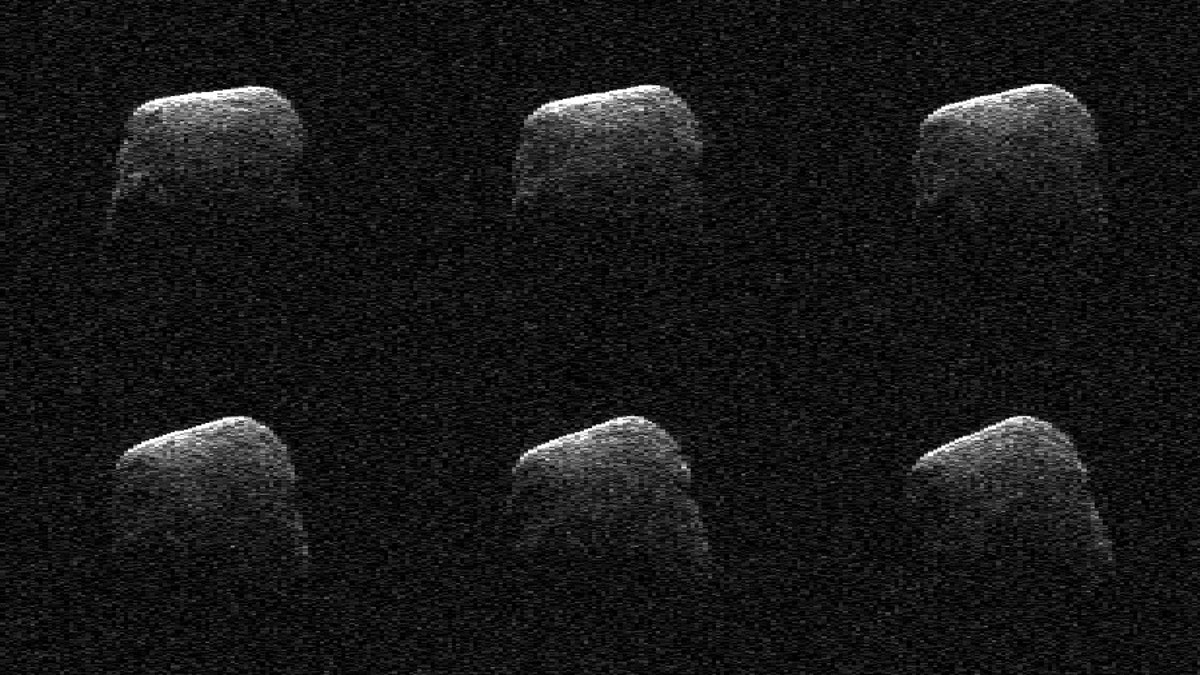
These radar images of comet P/2016 BA14 were taken on March 22, 2016, by scientists using an antenna of NASA's Deep Space Network. At the time, the comet was about 2.2 million miles from Earth. (NASA/JPL-Caltech/GSSR)
Citizens of Earth, get out your calendars: June 30, 2017 will be International Asteroid Day, the United Nations proclaimed on Wednesday.
June 30 may seem like a random date, but it’s not. On that day in 1908, the massive Tunguska asteroid event smashed over 770 square miles of terrain in Siberia in an explosion that knocked down millions of trees. The United Nations said that the point of International Asteroid Day is to “raise public awareness of the asteroid impact hazard”-- in other words, to work towards making sure that we all don’t perish during a cataclysmic space rock impact.
In the United States at least, NASA’s Planetary Defence Coordination Office takes the lead on keeping track of objects that could hit Earth as well as helping to figure out what to do if they were to detect such a threat. Part of that is the Near Earth Object Program, which in late October announced that they are now keeping track of a multitude of rocks: over 15,000 near-Earth asteroids.
NASA WILL TACKLE ASTEROIDS WITH NEW PLANETARY DEFENSE OFFICE
And on Sept. 7, an asteroid anywhere from 25 to 50 feet across whizzed past Earth, with about 25,000 miles to spare above the South Pole— much, much closer than the average distance between the moon and Earth, which is around 239,000 miles. That asteroid was only found two days before, on Sept. 5. Part of NASA’s future plans even call for grabbing a boulder from an asteroid and bringing it back to a lunar orbit, which is part of developing the technology to ideally protect Earth from space hazards.
Asteroid Day was an event even before the United Nations recognized it as such. In a musical twist, the founders of the movement include Brian May— guitarist from the band Queen as well as holder of a doctorate in astrophysics.
HOW THE AIR FORCE'S 'SPACE FENCE' WILL KEEP AMERICAN SATELLITES SAFE
“We are extremely proud of the UN recognition as we founded Asteroid Day to raise awareness of the asteroid threat and the opportunity for the human species to unite around a single goal: protect our planet from asteroid impacts,” May, and the three other founders of Asteroid Day, said in a statement.
Follow Rob Verger on Twitter: @robverger
